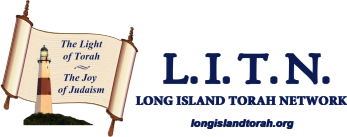Va'Eschanan
Va'Eschanan means "and I pleaded." Moses, continuing his parting address to the Jewish People, recounts how he pleaded that G-d allow him to enter the Land of Israel, until G-d finally ordered him to desist - the decree could not be changed. Moses could not enter the Land, but he would be given the privilege of surveying it from atop the mountain.
Moses exhorts the Israelites that they must always take care to remember the Revelation they witnessed at Sinai, and its implications: that there is but one G-d; that that the Jews' success as a People depends on their faithfulness to His Law.
Moses now commences a review of the Law itself, beginning with the Ten Commandments, and continuing onward through the coming Parshiyos.
This Parsha also contains the first paragraph of the Shema (Hear O Israel), which proclaims that G-d is One, that we must love Him with all our heart and soul, and we must carry His Word on our hearts. We must teach it to our children, speak of it morning and night (the source of the MItzvah to recite the Shema twice daily), bind it upon our hands and heads (the Tefillin), and inscribe it upon our doorposts (Meuzah).
Moses exhorts the Israelites that they must always take care to remember the Revelation they witnessed at Sinai, and its implications: that there is but one G-d; that that the Jews' success as a People depends on their faithfulness to His Law.
Moses now commences a review of the Law itself, beginning with the Ten Commandments, and continuing onward through the coming Parshiyos.
This Parsha also contains the first paragraph of the Shema (Hear O Israel), which proclaims that G-d is One, that we must love Him with all our heart and soul, and we must carry His Word on our hearts. We must teach it to our children, speak of it morning and night (the source of the MItzvah to recite the Shema twice daily), bind it upon our hands and heads (the Tefillin), and inscribe it upon our doorposts (Meuzah).

